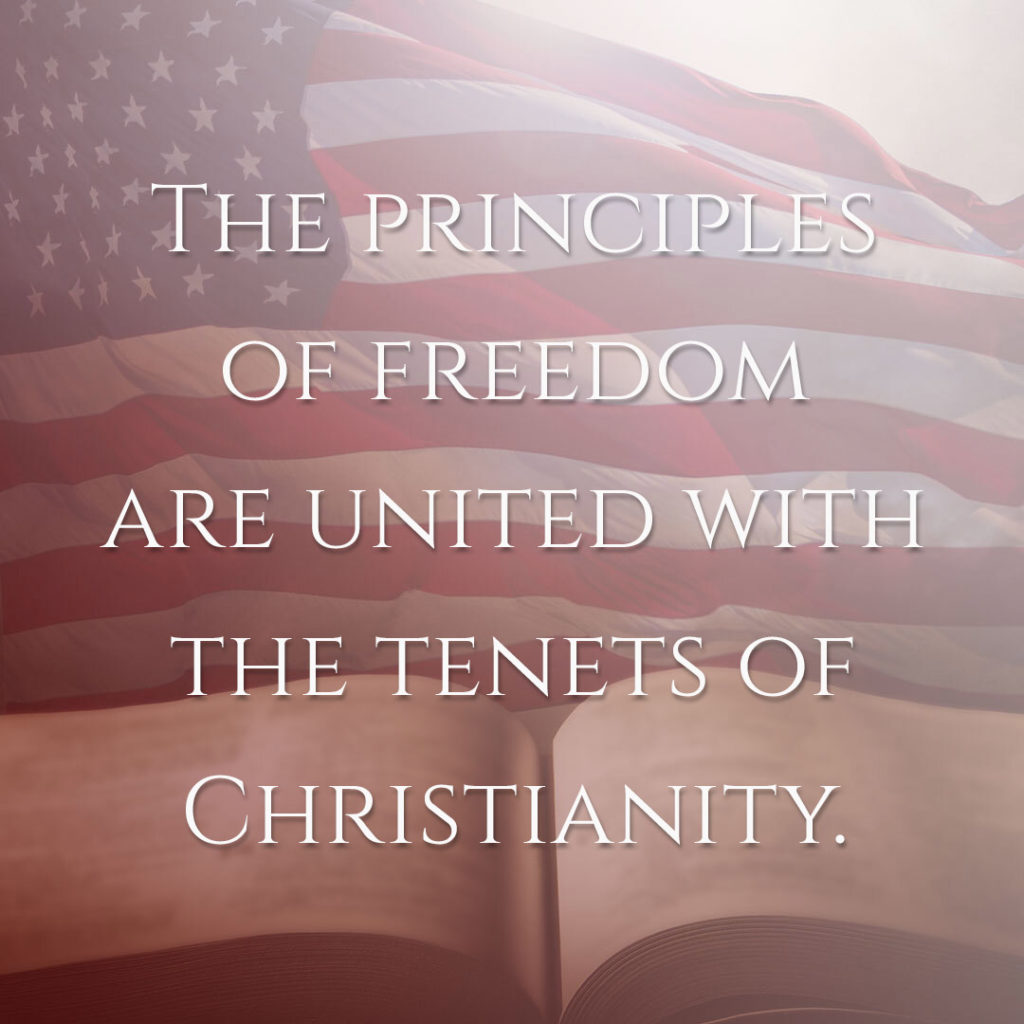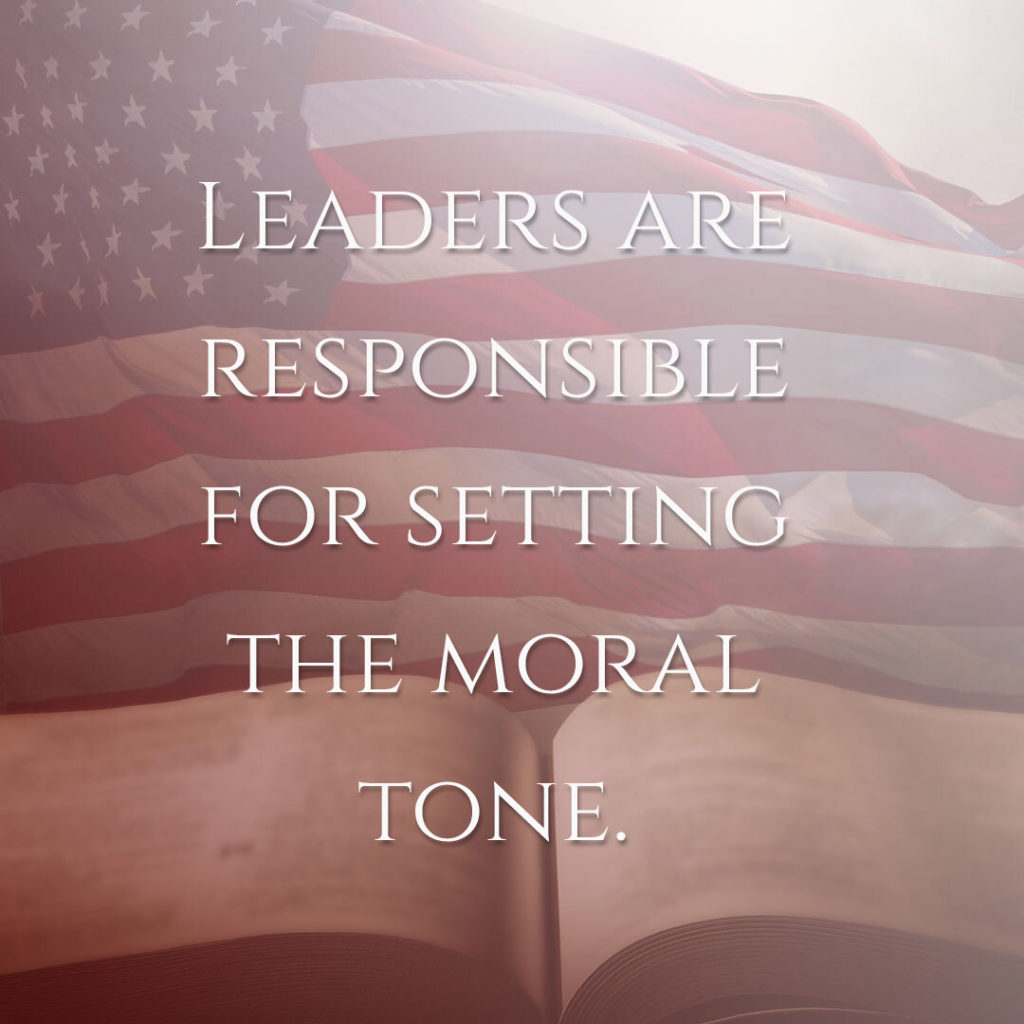Sometimes we take the blessing of our freedom for granted, but each election reminds us of the privileges of living in a free country. At its core, America was founded on the principles of liberty and was shaped by Christian thinkers. In his inaugural address as the first President of the United States, George Washington remarked, “No People can be bound to acknowledge and adore the invisible hand, which conducts the Affairs of men more than the People of the United States.”
God’s Goodwill Toward America
As we prepare for the upcoming election, I am grateful for four specific aspects of our national identity that have prompted God’s blessing:
Missions.
From the first Virginia colony that endeavored “to preach and baptize into Christian religion… a number of poore and miserable soules,” to the Haystack Prayer Meeting of 1806, to the groundswell of foreign missions that followed World War II, America has been a force for foreign missions.1 If we believe the closest thing to the heart of Almighty God is to reach everyone with the message of His love, then we can be confident of His blessing on a nation that is committed to sending missionaries.
Israel.
In keeping with Genesis 12:1-3, America has been blessed because she has been a friend and homeland to the Jewish people. An estimated 5.3 million Jewish adults call America home, and the U.S. has been a vocal advocate for the nation of Israel both politically and economically.
Freedom.
I have observed in the Old and New Testament that the principles of freedom are united with the tenets of Christianity. America was founded on such principles. A 2012 study classified 32 percent of the world’s population as “free,” with the remaining population being either “partly free” or “not free.”2 Americans are among the fortunate few to enjoy the blessings of freedom.

Faith.
America has traditionally honored God and His Word. President Abraham Lincoln once wrote, “All the good the Saviour gave to the world was communicated through [the Bible].” Many of the men who shaped America considered it their duty to integrate biblical principles with righteous governing, and citizens have been the beneficiaries of the blessings they set in motion.
As we vote this November, let’s think about more than Republicans and Democrats and propositions. Let’s commit to serving God through our civic involvement every day of the year.
Send care packages and letters to deployed soldiers, thanking them for their sacrifices.
Buy an American flag, learn the rules of respect for it, and proudly display it.
Visit national historical sites.
Read Psalm 33 and reflect on God’s sovereignty over government affairs.
Thank the Lord for our civil liberties and pray for believers in other countries who do not share such freedom.
God's Guidelines for Rulers
In Ancient Israel, God blessed King Solomon with supernatural wisdom. His insightful leadership was so widely recognized that foreign rulers, like the Queen of Sheba, traveled great distances to meet with him. His timeless advice is sound counsel for anyone who occupies a seat of authority in government. Solomon’s wise sayings provide a framework by which to compare our potential leaders with God’s standards.
Wine and wild living.
Let’s get this out of the way up front. The Bible is clear about God’s position on both matters: Rulers need to be wise about allowing any substance or moral distraction and/or failure to interfere with their God-given responsibilities. Anyone who argues that leaders aren't responsible for setting the moral tone in the place where they serve contradicts Scripture. When we look at political candidates, we need to know what kind of people they are. Will they represent us well? Will they be good role models for our nation’s youth?

1 Kings 11:1, 3-4
Proverbs 20:1
Proverbs 23:29-30
Proverbs 31:3
Proverbs 31:4-5
Wise counsel.
Proverbs 15:22 says, “Without counsel, plans go awry, but in the multitude of counselors they are established.” Even wise people make wrong decisions without good advice. Solomon’s life bears testimony to that truth. When choosing a leader, it’s important to know what kind of people will be influential and providing counsel to this individual.
The goal of the wise in antiquity was to exercise wisdom and to train others to be wise. In other words, skill could be taught and passed from person to person and generation to generation. The form for passing on wisdom was often the proverb — a pithy, usually two-line saying that typically capitalized on a comparison or contrast from everyday life.
The master at creating these short sayings was Solomon — he spoke 3,000 proverbs during his reign (1 Kgs. 4:32). Solomon’s wisdom was a gift from God, an answer to Solomon’s own prayer for wisdom to govern the people when he became king (1 Kgs. 3:5 – 15). His proverbs, along with collections from other sages in Israel, are compiled in the Book of Proverbs and were intended to create a nation of people who were skilled at living life consistent with God’s spiritual and natural laws.
No book in the Bible sets out its purpose with greater clarity than Proverbs: “to know wisdom and instruction, to perceive the words of understanding, to receive the instruction of wisdom, justice, judgment, and equity; to give prudence to the simple, to the young man knowledge and discretion” (1:1-4).
The targets are the simple (naïve), the young, the wise, and those with understanding. Proverbs has something to teach everyone, but such goals are not easily attained. Wisdom must be sought with all diligence.
Wisdom and integrity.
The issues that leaders face today are rarely clear-cut. Matters of social justice are often tainted by shades of gray that require careful discernment. But according to Proverbs 20:8, a righteous ruler “weighs all the evidence, distinguishing the bad from the good” (NLT). There is no more powerful tool in the hand of Almighty God than a godly person who is doing the right thing!
God's Guidelines for Citizens
Proverbs is full of wisdom for government representatives, but it correctly guides citizens too. It sets forth God’s expectations that we be truthful, respectful, and moderate.
Truthful.
Proverbs 16:13 says, “Righteous lips are the delight of kings, and they love him who speaks what is right.” While you may never speak directly with the President or his cabinet, you do communicate through your taxes and through your respect for authority.
We represent Christ in our interactions with our government, so doing what is right is part of responding to authority as God would have us to do. What did Jesus tell the religious leaders about paying taxes in Mark 12:17?
Respectful.
Even when we disagree with the government, as Christians, we are called upon to obey in submission and respect to authority unless it is in violation with the Word of God. Throughout history, Christians have been known to be the best citizens in any culture. Why? According to Romans 13:1, authorities are appointed by God.
Moderate.
There are times when we will have the opportunity to influence our leaders. On those occasions, we’re called to be patient and deal gently with the issues as they come. Proverbs 25:15 says, “Patience can persuade a prince, and soft speech can break bones” (NLT).
The road to godly influence begins with a desire for a righteous outcome. God’s people should not be seduced by wealth, fame, or fortune. Instead, we should:
Read James 3:13-18. How could you apply this passage to your attitude about our political leaders?

God’s Grasp on Politics
Have you ever known someone who gets so wrapped up in politics that they become depressed when an election doesn’t go their way? Are you that person? In a diverse society, someone’s value system will be rejected, and that can be discouraging. But we need to remember that in every election, every geographic area, and every government, God providentially controls those in authority.
Proverbs 21:1 says, “The king’s heart is in the hand of the Lord, like the rivers of water; He turns it wherever He wishes.” The king’s heart in God’s hand—place that picture in your mind. World events do not happen apart from God’s sovereignty. Even when politics defy our comprehension, God is never surprised or flustered or baffled by the events of the day.
Our attitude as citizens ought to be to work diligently to elect the best people possible to office by studying their beliefs, thoughts and motives to make that decision. Then, when we cast our vote, we bow our head before Almighty God and say, “Thy will be done,” because He is in charge.
Read 1 Peter 1:11-17. How does your attitude toward government affect your witness?
Sources:
1 The Virginia Company, A True and Sincere Declaration of the Purposes and Ends of the Plantation Begun in Virginia, 1609, https://www.encyclopediavirginia.org/A_true_and_sincere_declaration_of_the_purpose_and_ends_of_the_plantation_begun_in_Virginia_by_the_Virginia_Company_of_London_1609, accessed on October 6, 2020.
2 Karin Deutsch Karlekar and Jennifer Dunham, “Press Freedom in 2012: Middle East Volatility Amid Global Decline,” Freedom House, https://freedomhouse.org/sites/default/files/FOTP%202013%20Booklet%20Final%20Complete%20-%20Web.pdf, accessed on October 6, 2020.
